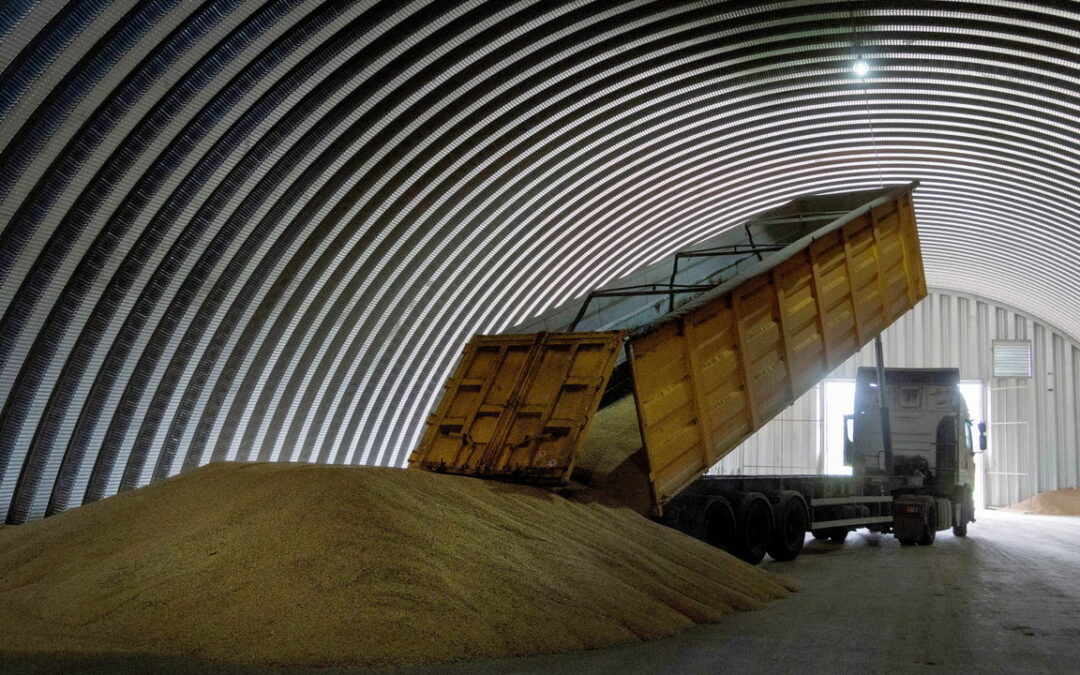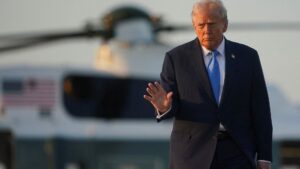EASTERN EUROPEAN countries have been among the staunchest supporters of Ukraine since Russia invaded last year. But that solidarity has frayed over the issue of agricultural exports. European Union member states that border Ukraine have argued that the duty-free import of Ukrainian produce to the bloc has caused havoc in their own markets. On May 2nd, to allay their fears, the bloc banned the sale or storage of certain Ukrainian produce in Bulgaria, Hungary, Poland, Romania and Slovakia (though transit through these countries was still allowed). These measures ended on September 15th. But Hungary, Poland and Slovakia have unilaterally extended them. On September 18th Ukraine said it was filing a complaint against these countries at the World Trade Organisation for hurting its exports of grain, oilseed and sunflower oil. Why are eastern European countries so keen to keep these Ukrainian goods out?
The problem has been months in the making. To help Ukraine’s economy and avert a global food crisis caused by a Russian blockade of Ukraine’s Black Sea ports, in June 2022 the EU lifted tariffs on a range of Ukrainian exports, including many agricultural products, and negotiated transit corridors through Bulgaria, Poland and Romania. The idea was to ship the goods to the Middle East and Africa. An agreement between Russia and Ukraine to let some produce travel via the Black Sea collapsed in July 2023, leaving river, road and rail routes as the key corridors to release Ukrainian produce.
But a shortage of trains and lorries slowed shipments to markets beyond eastern Europe, and much of the produce ended up in local ones. Plummeting prices hurt the incomes of local farmers, sparking weeks of protests. On April 15th Poland’s government banned the import and transit of agricultural produce from Ukraine. Poland’s agriculture minister, Robert Telus, said that its embargo on dozens of goods—including grains, milk, honey, fruits, vegetables and some meats—was necessary to “open the eyes of the EU”. Hungary and Slovakia quickly followed suit. The EU, as the institution in charge of trade policy, agreed to a compromise: ban the import to some countries temporarily, while allowing transit to the west. That compromise has now expired, and the EU refuses to extend it, claiming that the “market distortions in the five frontline countries have disappeared”.
Hours after the embargo ended, Hungary, Poland and Slovakia said they would introduce their own restrictions on grain imports (transit through their territories is still exempt). Ukraine’s economy minister, Yulia Svyrydenko, said the new ban chipped away at solidarity with the bloc and deepened the distress of Ukrainian farmers. “Ukraine sees this as a violation of international obligations,” she said. Her deputy, Taras Kachka, said that Ukraine was considering retaliatory measures on Polish products, such as onions and apples, as well as on Hungarian cars if the bans remained in place by September 22nd.
The unilateral moves also put Hungary, Poland and Slovakia on a collision course with the European Commission, which can launch an infringement procedure if countries do not implement the EU’s common trade policy. The EU is normally responsible for representing its members in disputes with the WTO, meaning it could be drawn into the complaint that Ukraine has brought. Germany’s agriculture minister, Cem Özdemir, accused the three countries of “part-time solidarity”. His French counterpart, Marc Fesneau, said that the unilateral actions threatened “collective efforts to preserve global food security”.
The EU’s rebellious eastern members look unlikely to relent. Poland’s government spokesman, Piotr Müller, said the country would uphold its ban despite Ukraine’s complaint to the WTO, which he said “made no impression”. Much of the motivation is political. Poland’s ruling Law and Justice party, which depends on the rural vote, faces a difficult general election on October 15th. Slovakia is also in the final stretch of a parliamentary electoral campaign. The favourite to win, Robert Fico, a populist former prime minister, has also pledged to curtail military and political support for Ukraine. As Europe seeks to bring Ukraine closer into its fold, the tussle over grain may provide a taste of problems to come. ■









